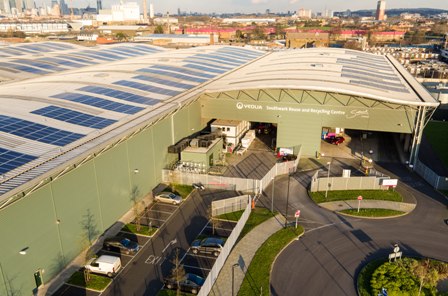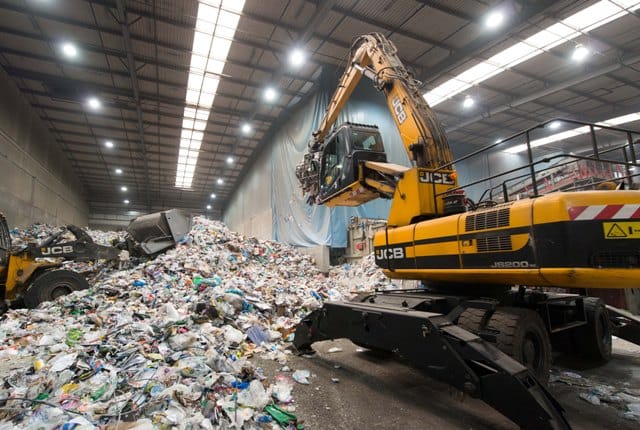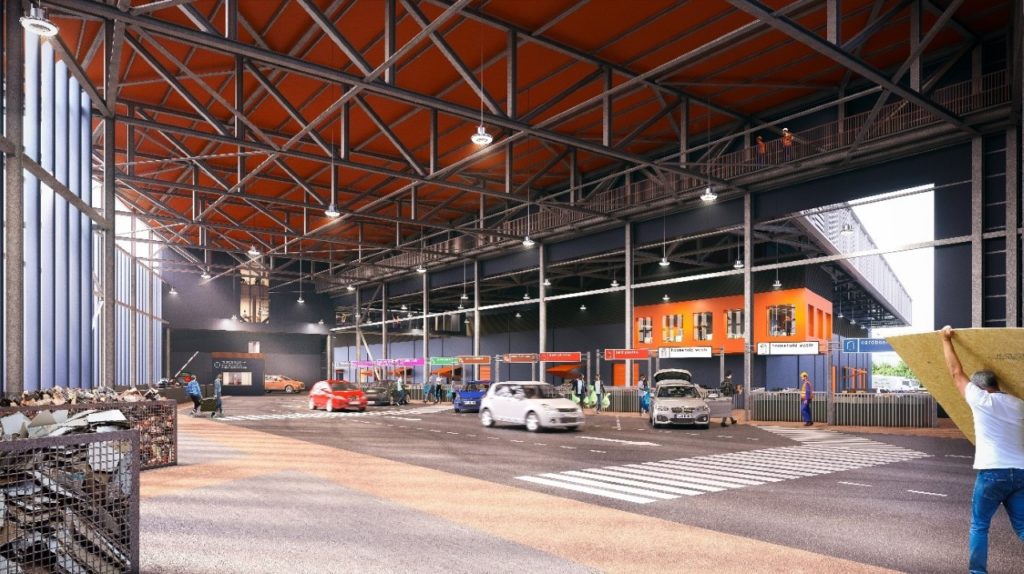
Commenting on the impact of the charge, which came into force on October 5 2015, Richard Kirkman, the company’s technical director for the UK and Ireland, said: ” In just 365 days we’ve seen a huge drop in carrier bags coming through our facilities.
“In fact, plastic bags collected by Veolia have reduced from an estimated 170 million to 40 million, since the 5p charge came into practice last October – that’s a huge 75% reduction. This is a great achievement and something we, as a nation, should be very proud of.”
Within the London borough of Southwark, where Veolia has a 25-year integrated waste management contract, film collected from the company’s Southwark MRF is sent for reprocessing in Holland by plastics recycling firm CeDo for remanufacturing into refuse collection sacks.
Bag2Bag
Highlighting the project, which was trialled last year and is now fully operational in Southwark, Mr Kirkman said: “At Veolia we’re now turning the carrier bags we do receive into new refuse sacks. Through our Bag2Bag scheme, launched in Southwark, we’re able to recycle the low density film – the main material in single use bags – back into single use refuse sacks that are then distributed back to Southwark residents.
“At Veolia we’re now turning the carrier bags we do receive into new refuse sacks”
Richard Kirkman
Technical director, Veolia UK and Ireland
“This is a great illustration of the shared contribution Veolia and the residents of Southwark make to the circular economy. We’re hoping to roll it out to other local authorities because if this was translated across the country we would save about 6.2 billion bags. This is equal to 15,000 tonnes of material and 15,000 tonnes of carbon emissions, helping out in the battle against climate change.”
And, Mr Kirkman said the carrier bag usage fall was also an important example of behavioural change. “When you walk down the street carrier bag litter has visibly reduced. All of this has been achieved in a very short space of time so we just need to keep up the momentum so we see further reductions in single use carrier bags on the second anniversary.
Bottles
“However, carrier bags are just the tip of the iceberg – we imagine a world where all plastic is recycled. Imagine if we collected all the plastic in the UK and recycled all the plastic bottles. Currently we only receive 50% of all plastic bottles but if we were to get them all this would save approximately 300,000 tonnes of materials, which is 300,000 tonnes of carbon, meaning we’d be well on our way to being a truly sustainable society.”

Referencing Veolia’s purchase of the former Closed Loop bottle recycling plant in Dagenham (see letsrecycle.com story), he said: “Our new facility in Dagenham is able to regenerate all the plastic milk bottles in London into food grade pellets to make new bottles. This is a huge step in the right direction and will double the UK’s recovery capabilities of high density plastic recycling. By reusing plastic, Veolia is closing the loop on a valuable resource and makes it possible to avoid pollution that is difficult to eliminate.”
Mixed film
CeDo development director, Adam Dickinson, told letsrecycle.com that the company was pleased to be working with Veolia. “We are trying to encourage the recycling of the mixed film material and we take in from sources all around Europe. The UK is still in its infancy in this area and we are happy to encourage anyone to follow this model.”
He commented that nature of the UK mixed film recycling stream has changed with the reduction in carrier bags. And, CeDo, which has its UK office in Telford, is hoping also to see more film collected from retailers with a hope that there be more of a switch by them to using PE (polyethylene) rather than also (PP) polypropylene. A switch to PE would make the recycling stream easier to process and be more efficient, added Mr Dickinson.









Subscribe for free